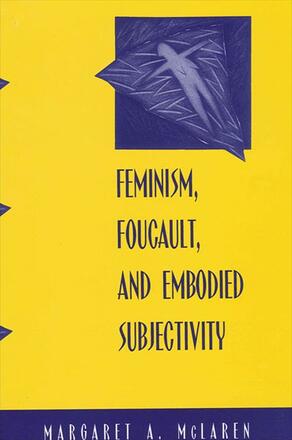
Feminism, Foucault, and Embodied Subjectivity
Alternative formats available from:
Argues that Foucault's work employs a conception of subjectivity that is well-suited for feminist theory and politics.
Description
Addressing central questions in the debate about Foucault's usefulness for politics, including his rejection of universal norms, his conception of power and power-knowledge, his seemingly contradictory position on subjectivity and his resistance to using identity as a political category, McLaren argues that Foucault employs a conception of embodied subjectivity that is well-suited for feminism. She applies Foucault's notion of practices of the self to contemporary feminist practices, such as consciousness-raising and autobiography, and concludes that the connection between self-transformation and social transformation that Foucault theorizes as the connection between subjectivity and institutional and social norms is crucial for contemporary feminist theory and politics.
Margaret A. McLaren is Associate Professor of Philosophy and Coordinator of Women's Studies at Rollins College.
Reviews
"Feminism, Foucault, and Embodied Subjectivity remains invaluable for its rendering of a thoroughgoing account of feminist theorists' interaction with Foucault through the late 1990s. " — Foucault Studies
"Engaging, clearly written, and well-argued, this book provides comprehensive and insightful overviews of much of the critical literature on Foucault. The author offers a sympathetic but not dogmatic reading of Foucault, giving careful reconstructions of some of his most important texts/arguments, and extends his ideas in interesting ways. " — Amy Allen, author of The Power of Feminist Theory: Domination, Resistance, Solidarity
"This is one of the strongest and best-informed defenses of Foucault's continued usefulness to recent feminist debates. McLaren knows the territory well and addresses squarely the difficult issues. An impressive achievement. " — Thomas R. Flynn, author of Sartre, Foucault and Historical Reason, vol. 1, Toward an Existentialist Theory of History